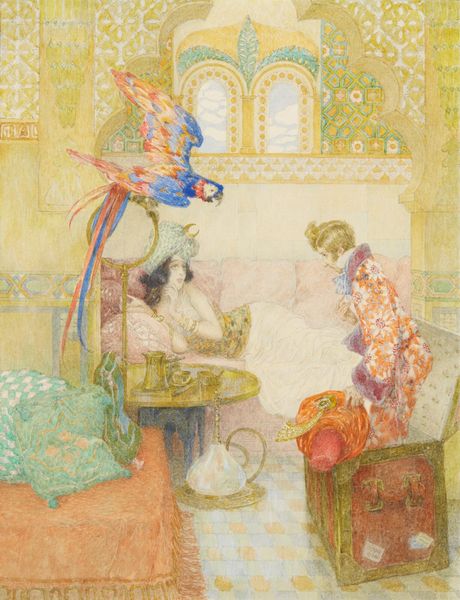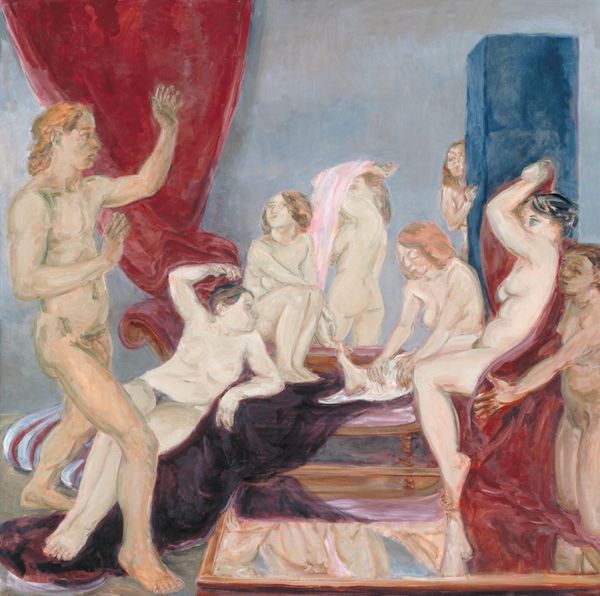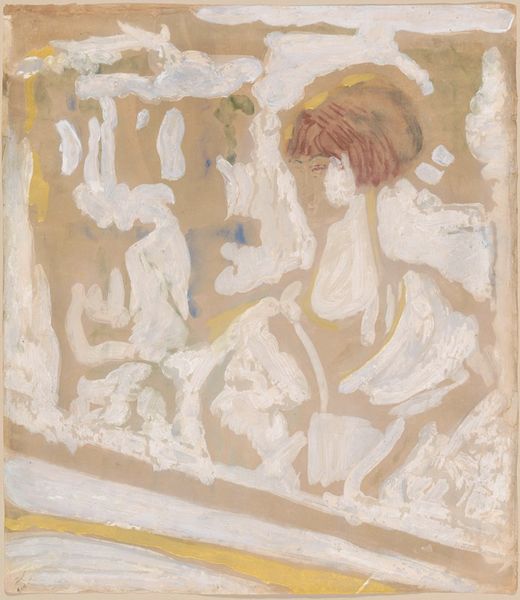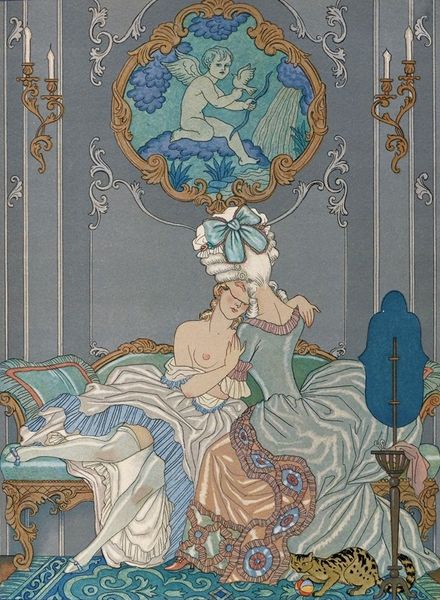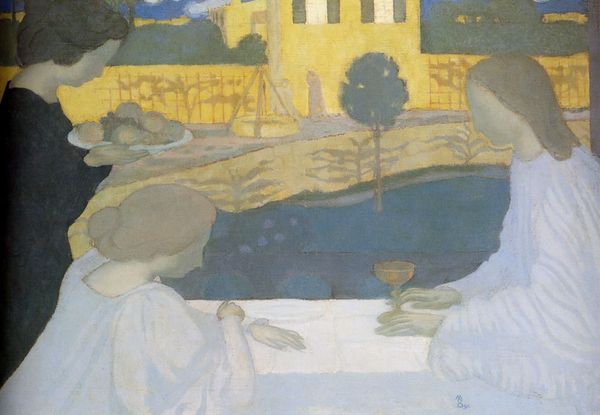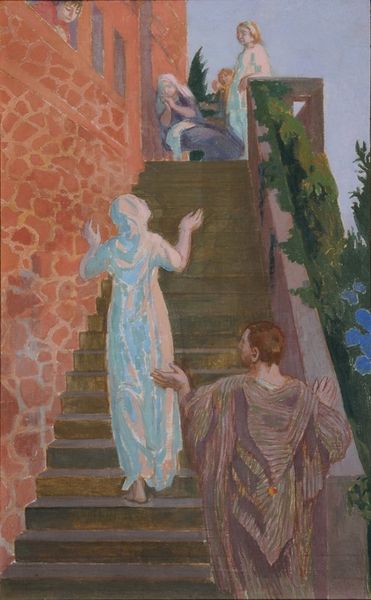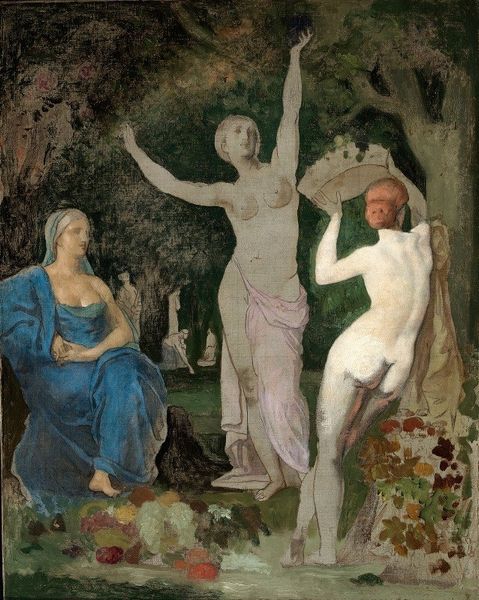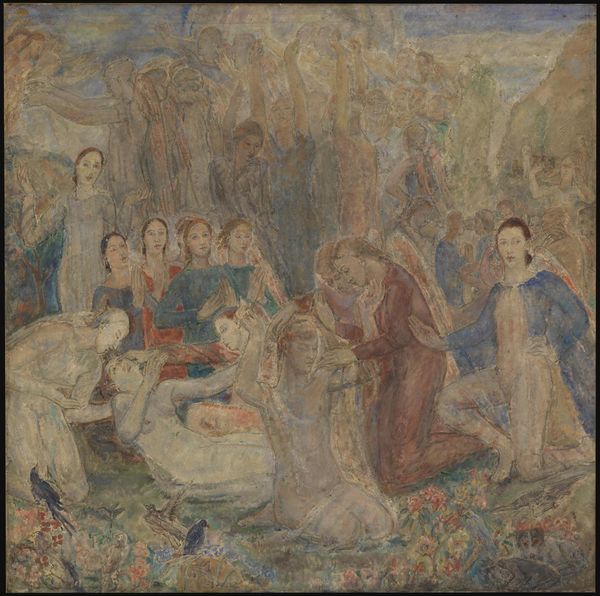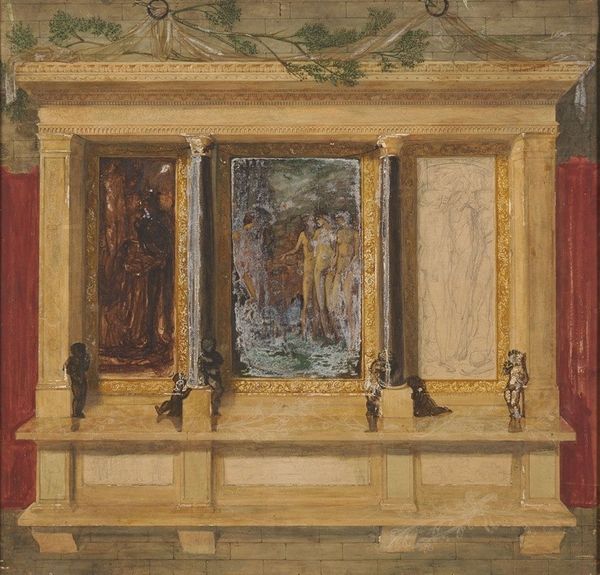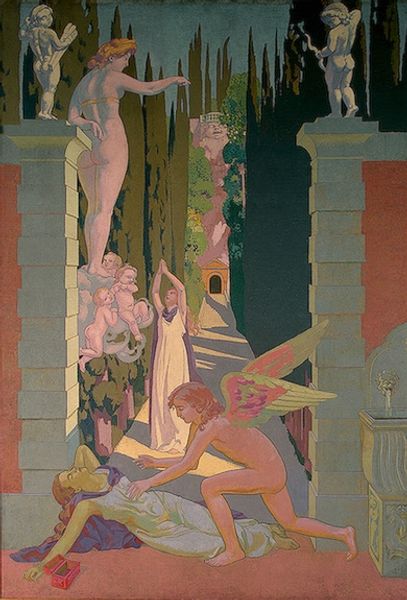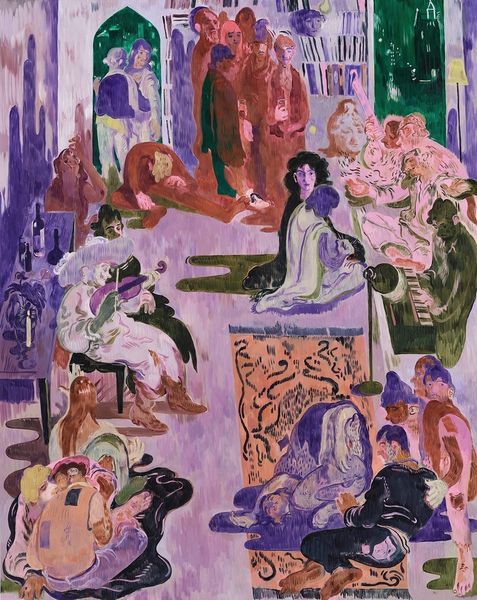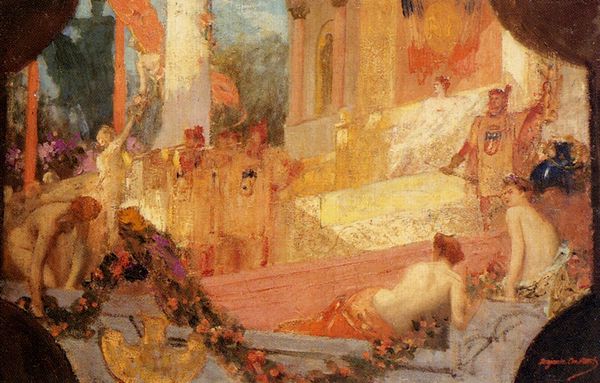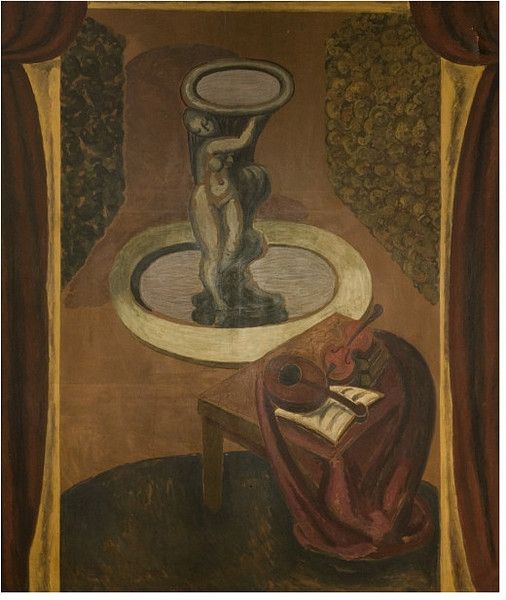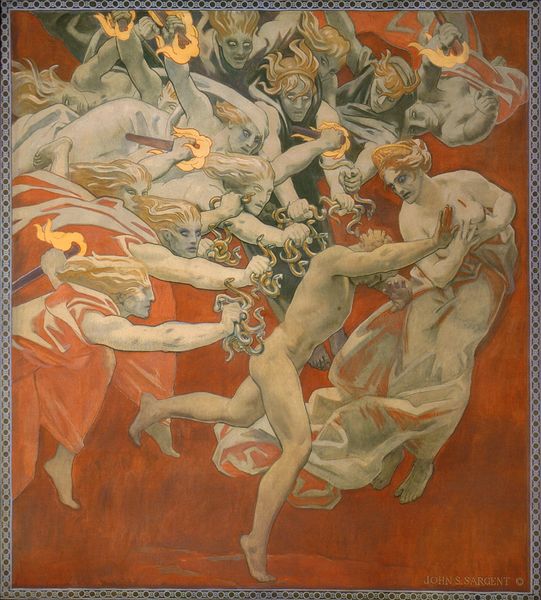
painting, oil-paint
#
water colours
#
allegory
#
narrative-art
#
painting
#
oil-paint
#
classical-realism
#
figuration
#
form
#
oil painting
#
romanticism
#
history-painting
#
academic-art
#
nude
#
watercolor
Copyright: Public domain
Curator: Up next we have an oil painting titled "Lutetia Famae Genitrix," attributed to Jean-Joseph-Benjamin Constant. Editor: The overall tone strikes me as ethereal, almost dreamlike. The pastel colors and the loosely defined figures lend a soft, otherworldly quality to the scene. Curator: Indeed. It's a highly allegorical piece, invoking classical themes of glory and legacy. You’ll notice the central figure seated, most likely embodying Lutetia, the ancient Roman name for Paris. It’s fascinating how Constant situates Parisian identity within a historical narrative stretching back to antiquity. Editor: I'm drawn to the composition, especially how the figures at the bottom seem to support the entire scene, literally and figuratively grounding the allegory in a physical presence. The use of perspective creates depth, with the goddess-like figures in the clouds visually receding into the heavens, reinforcing the painting's conceptual grandeur. Curator: Precisely. And it's hard not to consider the piece in light of the late 19th-century French context: The pursuit of national pride in the wake of political upheaval, perhaps an urge to depict France – Paris in particular – as timeless and triumphant, even as its contemporary circumstances proved complicated. Editor: Yet, that triumphant feeling feels somewhat subdued. There's a delicate balance in Constant’s color choices—the muted tones restrain it from being overtly bombastic. It creates a thoughtful meditation rather than an outright celebration. Curator: The classical garb and iconography certainly play a role. By referencing classical antiquity, Constant not only situates France within a long and celebrated lineage, but also perhaps sought to align it with ideals of civilization and cultural authority. Editor: The brushwork, so loose and expressive, gives life to these idealized forms. It suggests movement and transience, qualities you wouldn't necessarily expect in such a grand allegorical depiction. It makes me wonder if Constant intended some sort of commentary on the fleeting nature of glory itself? Curator: A compelling point. Perhaps a reflection on how fleeting political power can be. Editor: Overall, the artwork's tension lies in its duality: it is at once grand and subtle, idealized and very human, assertive, and somehow deeply contemplative. Curator: It's definitely a piece that continues to yield interpretations! A powerful glimpse into the past and the artistic and political milieu.
Comments
No comments
Be the first to comment and join the conversation on the ultimate creative platform.
